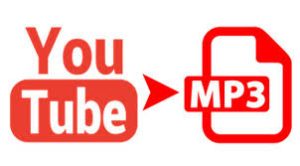Navigating the legal landscape of digital media can be complex, especially when it comes to sharing MP3s that have been converted from YouTube videos. It’s crucial to understand the legal implications to ensure that you’re not infringing on copyright laws. This article will explore whether you can legally share YouTube MP3s and the potential consequences of doing so.
Understanding Copyright Laws
Copyright Ownership: YouTube videos, including music and audio, are typically copyrighted material, owned either by the creator, a music label, or a media company. When you convert a YouTube video to an MP3, you are creating a copy of copyrighted content, which is subject to copyright laws.
Copyright Exceptions and Fair Use: There are few exceptions that might allow the use of copyrighted material without permission under the doctrine of fair use. However, fair use is a legal defense, not a right, and it typically covers uses such as criticism, comment, news reporting, teaching, scholarship, or research. Sharing a full-length converted MP3 rarely falls under these categories.
Legal Risks of Sharing Converted MP3s
Potential Copyright Infringement: Sharing MP3s converted from YouTube without explicit permission from the copyright holder is generally considered copyright infringement. This can lead to legal consequences including lawsuits, hefty fines, and in some cases, criminal charges.
Platform Policies and Penalties: Besides legal issues, sharing copyrighted content can lead to penalties from online platforms. Social media sites and digital platforms have mechanisms to detect and remove copyrighted content, and repeatedly sharing infringing content can lead to account suspensions or bans.
Safe Practices for Sharing Digital Content
Seek Permission: The safest way to share any copyrighted content, including MP3s converted from YouTube, is to first obtain permission from the copyright holder. This may involve licensing the content or using content that is explicitly offered under a Creative Commons license or similar terms.
Use Licensed or Public Domain Works: Consider using or sharing content that is in the public domain or available under free licenses. Many artists and creators offer their work under licenses that allow free redistribution without the need for individual permission.
In essence, while the technology to convert YouTube videos into MP3s is readily available and widely used, sharing these files can often violate copyright laws unless proper permissions are obtained. Always be cautious and ensure that your actions conform to legal standards and respect the rights of copyright holders. This not only avoids legal complications but also supports the creators who produce the content we enjoy.
